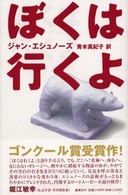Full Description
The book is a comparative study of the constructivist avant-garde artists in Central Europe, the Hungarian MA group in exile in Vienna, the Blok group in Warsaw, and the Czech Devětsil association of artists in Prague. The author examines the similarities and significant differences among them. Contrary to often-repeated theses, the study reveals that the artists unremittingly sought new formulations for an initial set of formal and theoretical issues. It also demonstrates that they persistently believed that their works of art prefigured a future socialist society. The long-awaited socialist states that came into being after World War II betrayed the artists.
Contents
List of Illustrations
Abbreviations
Introduction
1 Theory and Practice of Constructivism in Central Europe
1 The Migration and Reception of Russian Constructivism
2 Vienna
3 Warsaw
4 Prague
2 Constructivist Visions of Totality and Happiness
1 The Quest for Totality
2 The Mechanical/Relational Paradigm
3 The Organic/Decentered Paradigm
4 Poetism and Constructivism: A Dialectical Unity
3 Unism: Subject and Object / Space and Time
1 Typography
2 Sculpture and Architecture
3 Theory of Vision
4 Poetism: A Marriage of Opposites
1 Popular or Proletarian
2 Picture Poems - Poetry for the Five Senses
3 Cinema: The Land of Utopia
4 Poetism: Acceptance and Rejection
Conclusion: Images of a Future International
Appendix 1: Lajos Kassák, "On the New Art"
Appendix 2: Lajos Kassák, "On Constructivism"
Appendix 3: Władysław Strzemiński, "Aspects of Reality"
Appendix 4: Karl Teige, "Poem, World, Man"
Bibliography
Index








